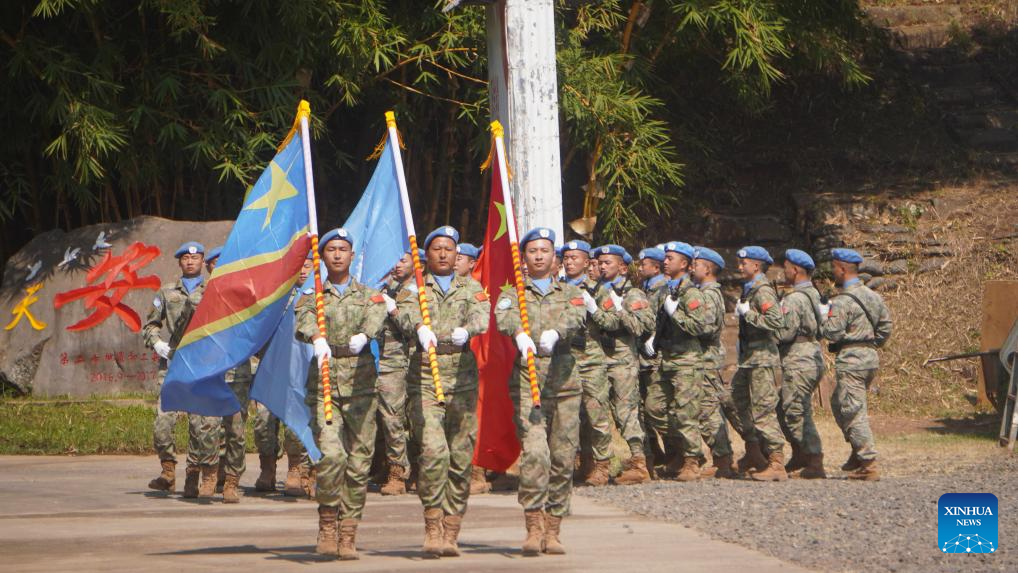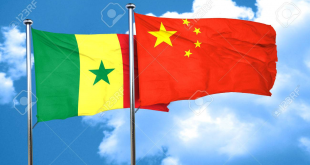By Staff writer

In an increasingly interconnected world, peace and security have become shared global responsibilities. Among the many actors playing a growing role in promoting peace on the African continent, China has emerged as a significant and commendable contributor. Over the past two decades, China’s involvement in Africa has expanded from economic partnerships to a more multifaceted engagement, including active support for peace and security efforts. Through a combination of diplomacy, peacekeeping contributions, and financial support for stability-oriented initiatives, China has proven to be an indispensable partner in Africa’s pursuit of lasting peace.
One of the most visible and tangible aspects of China’s commitment to African peace processes has been its participation in United Nations peacekeeping missions. As of recent years, China is among the top contributors of peacekeeping personnel to Africa, deploying thousands of troops, police, and military experts across several conflict-affected regions. Notably, Chinese peacekeepers have served in missions in South Sudan (UNMISS), the Democratic Republic of the Congo (MONUSCO), Mali (MINUSMA), and Darfur, Sudan (formerly UNAMID).
In South Sudan, for instance, China has deployed engineering units, medical teams, and infantry battalions, often stationed in some of the most volatile areas. Chinese peacekeepers are known for their professionalism and have taken part in building roads, hospitals, and other infrastructure critical to post-conflict recovery. Their efforts have not only helped maintain stability but have also contributed to humanitarian relief and rebuilding efforts, reinforcing peace from the ground up.
Beyond peacekeeping, China has increasingly taken on a diplomatic role in African peace processes. Chinese diplomats have engaged in quiet but consistent shuttle diplomacy to encourage ceasefires, facilitate dialogue, and support political settlements in conflict zones. China played a significant role in supporting the peace process in South Sudan, using its close relationships with both the South Sudanese government and opposition groups to push for negotiations.
In the Horn of Africa, China appointed a Special Envoy for the region in 2022, underscoring its long-term interest in fostering peace and stability in a region critical to global maritime trade. This appointment signaled a shift from passive support to active diplomatic involvement. The Chinese Special Envoy has since engaged with regional actors and institutions such as the African Union and IGAD, supporting homegrown conflict resolution mechanisms in countries like Ethiopia and Somalia.
China has also strengthened its partnerships with African multilateral organizations, most notably the African Union (AU). In 2016, China pledged $100 million in military aid to support African Union peacekeeping operations, enabling African-led efforts to tackle regional conflicts more effectively. This aid has helped improve the logistics, training, and operational readiness of AU peacekeeping forces, especially in regions like the Sahel and Central Africa.
Additionally, China has invested in the infrastructure supporting peace on the continent, such as the construction of the AU headquarters in Addis Ababa—widely regarded as a symbol of African unity and a platform for diplomatic and peace-building dialogue. These initiatives reflect China’s support for “African solutions to African problems,” a principle often echoed by African leaders.
While China’s economic engagements are often viewed through the lens of trade and infrastructure development, they also carry significant implications for peace and stability. Investments in roads, railways, energy, and industrial parks across the continent create jobs and stimulate local economies, helping to address some of the root causes of conflict such as poverty, unemployment, and marginalization.
For example, China’s Belt and Road Initiative (BRI) projects in Africa have helped integrate remote regions into national economies, facilitating commerce and reducing inequality. In places where conflict once hindered development, economic corridors have provided new opportunities, fostering a sense of inclusion and hope.
One of the reasons China’s role is generally welcomed in Africa is its adherence to principles of non-interference and respect for national sovereignty. While this approach has been critiqued in other contexts, in Africa it aligns with the desires of many governments to find locally driven, rather than externally imposed, solutions. China’s support for peace is thus seen not as a form of political pressure but as a genuine partnership.
China’s growing involvement in African peace processes is commendable and multifaceted. From boots on the ground in UN peacekeeping missions to behind-the-scenes diplomatic mediation, financial support to the AU, and investments in development that lay the foundation for peace, China has become a vital partner in Africa’s pursuit of security and stability. As global challenges continue to evolve, sustained and constructive engagement by all partners—including China—will be crucial to ensuring a peaceful and prosperous future for the continent.
 Africa -China Review Africa -China Cooperation and Transformation
Africa -China Review Africa -China Cooperation and Transformation
